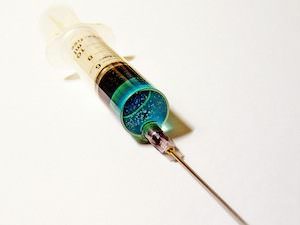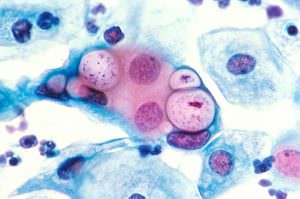Gonorrhea ‘Superbugs’ Tearing Path Across the Globe
Drug-resistant strains of gonorrhea, including one reported in Japan in 2008, have spread to countries around the world, infecting more than 100 million people a year, in part because symptoms have become harder to detect, the World Health Organization says.
Drug-resistant strains of gonorrhea, including one reported in Japan in 2008, have spread to countries around the world, infecting more than 100 million people a year, in part because symptoms have become harder to detect, the World Health Organization says.
Britain, Australia, France, Norway and Sweden have reported cases of the sexually transmitted disease that are resistant to cephalosporin antibiotics. Untreated, gonorrhea can lead to ectopic pregnancy, pelvic inflammatory disease, stillbirth, severe eye infections in newborns and male and female infertility.
Roughly 700,000 new cases are reported in the United States each year. The disease remains most prevalent in parts of Asia and sub-Saharan Africa. Millions of patients worldwide will be left without treatment options if doctors cannot catch and treat the disease earlier.
Experts say the emergence of the drug-resistant strain is due to poorly controlled access to and overuse of antibiotics, which encourages bacteria to evolve to withstand the drugs.
The Guardian:
Francis Ndowa, formerly the WHO’s lead specialist for sexually transmitted infections, said gonorrhoea had not only adapted to elude antibiotics but had developed less painful symptoms, increasing its survival chances.
“They used to say that if you have urethral gonorrhoea and you go to the toilet to pass urine, it would be like passing razor blades. It was that painful,” he explained. “Now people with gonorrhoea sometimes … only notice the discharge if they look when they pass urine. It’s not that painful any more.
“So the organism has re-adjusted itself to provide fewer symptoms so that it can survive longer. It’s an amazing interaction between man and pathogen.”
— Posted by Alexander Reed Kelly
Your support matters…Independent journalism is under threat and overshadowed by heavily funded mainstream media.
You can help level the playing field. Become a member.
Your tax-deductible contribution keeps us digging beneath the headlines to give you thought-provoking, investigative reporting and analysis that unearths what's really happening- without compromise.
Give today to support our courageous, independent journalists.




You need to be a supporter to comment.
There are currently no responses to this article.
Be the first to respond.